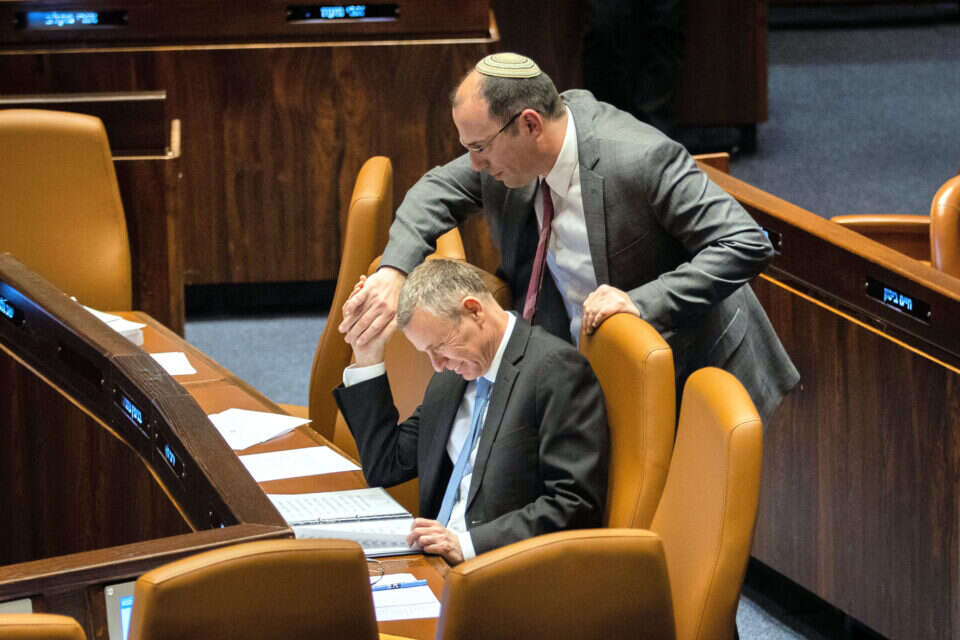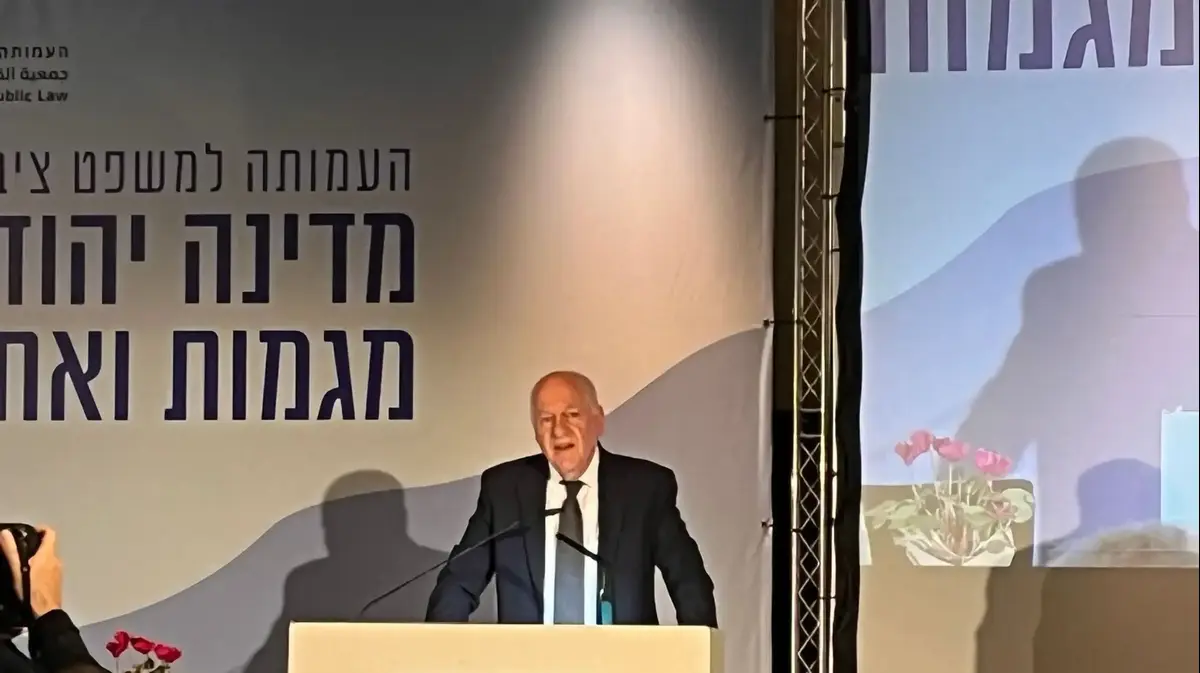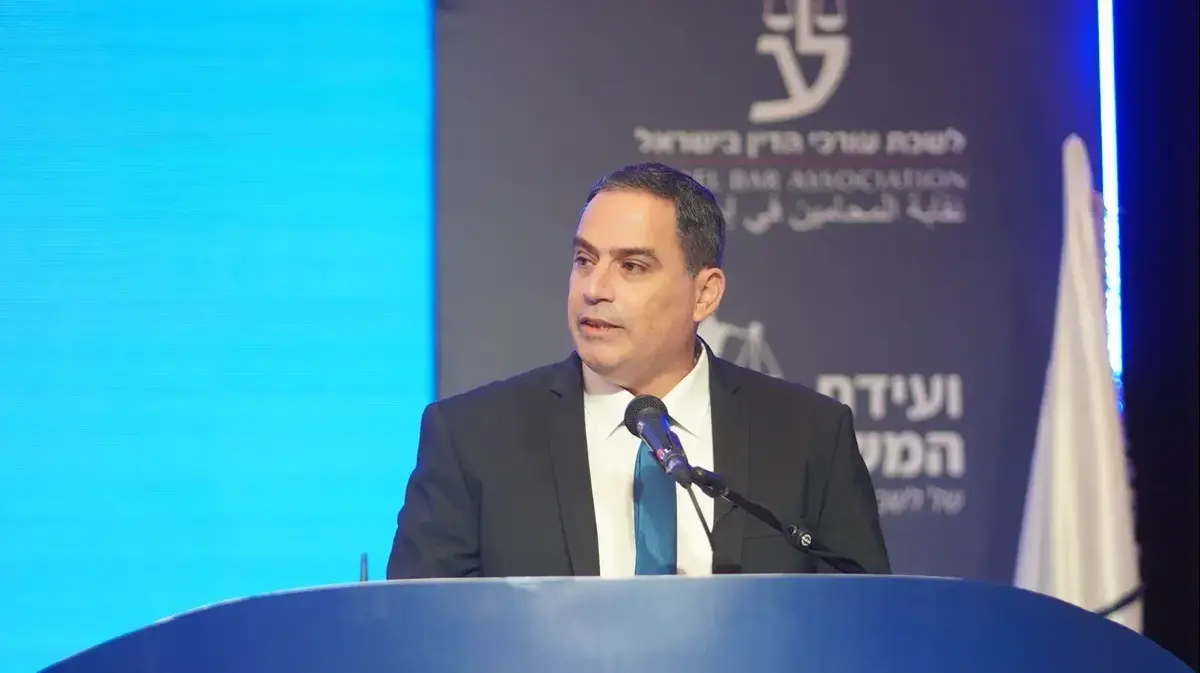The Minister of Justice, Yariv Levin, plans to introduce a change in the legal reform.
"Israel Hayom" has learned that one of the changes that Levin wants to make is a softening of the law that states that the court will not be able to pass a judicial review on a basic law that has already passed the first reading in the Knesset.
Minister Levin proposes to establish that the enactment of a basic law or amendment of a basic law will be carried out in four readings, in contrast to a normal law that needs only three readings.
After the three readings in the Knesset - the fourth reading will only take place in the following Knesset, that is, after a new Knesset is elected in the elections, and only then will the Basic Law enter into force.
This is a change that recalls the first section of President Herzog's compromise outline, which said that the legislative procedures must be regulated and that fundamental laws must be passed in four readings.
But the president did not mention the need for legislation in the subsequent Knesset.
In recent days, Levin hinted at the desire for this change.
This is a section previously proposed by the Minister of Justice in the Basic Law: the legislation he submitted in the previous Knesset, and is intended to regulate the legislative procedures of laws in the Knesset.
The Knesset Plenum.
Will the Basic Law be passed in four readings?, Photo: Oren Ben Hakon
Four instead of three
Today, a basic law can pass the Knesset in three readings if it is a government law or four readings if it is a private bill.
But today all readings are done in the same Knesset.
Levin's proposed amendment was actually intended to balance the reform's statement that the High Court could not pass judicial review and invalidate basic laws, and on the other hand establish that the procedure for enacting a basic law in the Knesset would also be more rigid.
This move answers the claims of the opponents of the reform and the opposition that the reform will allow the coalition to enact any law as a basic law and thus avoid judicial review, and thus a tyranny of the majority may arise in legislation that will harm the rights of minorities.
Netanyahu and Deri.
The laws concerning them will not be affected, photo: Oren Ben Hakon
Will not apply to Deri's law
Already today, the coalition is making legislative amendments to basic laws for its political needs, such as the "Deri Law 2" which amends the Basic Law: the government in order to bypass the High Court's ruling and appoint Deri as a minister, as well as the fortification law designed to prevent the prosecutor and the court from determining that Netanyahu should go out to the forts.
The understanding is that the change will not apply to the Deri Law or the Fortifications Law since they will be enacted in the third reading before Levin's change in the reform will pass in the third reading.
Also, from a political point of view, it is unlikely that the coalition will feel comfortable returning Deri to the government or passing the fortification law.
Since Levin encountered difficulties with the ombudsman to promote the legal reform as a government proposal, the version that is now being promoted in the Knesset is actually a line of laws by the chairman of the Constitution Committee, MK Simcha Rothman, and it is a slightly different version from Levin's original version. For the second and third readings are expected More adjustments between the versions of the two.
Minister Levin's office refused to comment.
In the shadow of the protests: are the talks getting closer?
While tens of thousands of citizens demonstrated yesterday against the legal reform, the politicians continued to speak in favor of dialogue, but did not move to actions.
The chairman of the state camp, Benny Gantz, spoke in the Knesset, and called for talks to be held immediately at the President's residence. After Gantz's words, Prime Minister Netanyahu said that his door was open, while Justice Minister Levin and MK Rotman called for talks "without preconditions." Gantz later He made it clear that he would agree to talks only after the legislation is stopped.
Knesset members Edelstein, Troper, Eisenkot, Danon.
A call for dialogue, photo: Oren Ben Hakon, Liron Moldovan
MK Benny Gantz and Prime Minister Netanyahu, photo: Oren Ben Hakon
In the meantime, Yuli Edelstein and Danny Danon from the Likud, and Gadi Eisenkot and Hili Trooper from the royalist camp issued a joint statement calling for the opening of negotiations on legal reform.
This is the first statement issued by representatives from the coalition and the opposition.
Also, the country's president, Yitzhak Herzog, spoke yesterday at an event in honor of the completion of a seafaring course and referred to the difficult political tensions surrounding the legal reform.
He explained that the current crisis is the opportunity to fortify Israeli democracy by reaching a broad consensus on the changes.
Because of this, he called on the parties to open a dialogue.
were we wrong
We will fix it!
If you found an error in the article, we would appreciate it if you shared it with us









/cloudfront-eu-central-1.images.arcpublishing.com/prisa/DAXPXX7XEC2R2VNNOX5XEX4T2U.jpg)